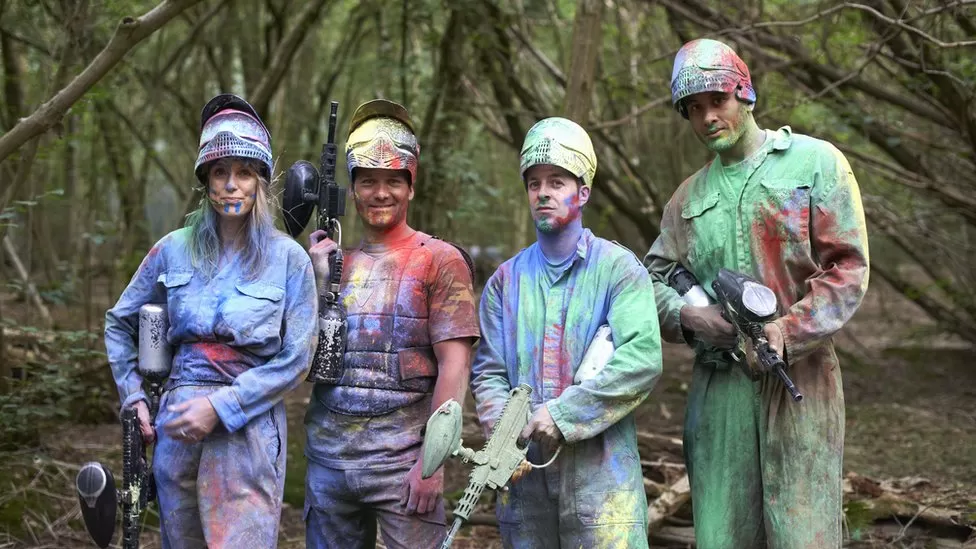Businesses are being urged to limit the amount of alcohol served at work and social events in order to prevent people from acting inappropriately towards others. The warning from the Chartered Management Institute (CMI) comes as it releases a new poll, suggesting a third of managers have seen harassment or inappropriate behaviour at parties. Women were more likely than men to say they had witnessed this behaviour. The CMI’s boss said alcohol “doesn’t need to be the main event” at parties. That’s something that Sarah, who’s 27 and works in finance, agrees with. “There are still wild parties in my industry, but I think this needs to change,” she told the BBC.

“I’m very conscious not to drink too much at work parties. If people want to go off and buy lots of drinks after the event, that’s up to them, but I think drinking at company socials can lead to inappropriate or regrettable behaviour.” Sarah says it’s important that colleagues are able to socialise with each other, but that alcohol shouldn’t always be at the forefront of that. “A lot of my friends don’t drink, or they might be on medication which prevents them drinking. It’s awkward for them if they’re at a work party, and they have to ask three times just to get a soft drink, and they could also feel peer pressured to drink.”
Managers’ responsibility
The CMI, which is a professional body focusing on management and leadership, surveyed more than 1,000 managers at the end of April. The poll, seen exclusively by the BBC, found that almost one in three managers (29%) report that they have witnessed inappropriate behaviour or harassment at work parties. Thirty-three percent of women surveyed said they had seen this behaviour, compared with 26% of men. Overall, two in five (42%) said work parties should be organised around activities that don’t involve alcohol. Younger people, aged between 16 and 34, were most likely to say this.

The chief executive of the CMI, Ann Francke, told the BBC that socialising with colleagues is “a great team building opportunity” that many people enjoy. But she added that managers have a responsibility to keep inappropriate behaviour in check, and to ensure there are safeguards in place. “That might mean adding additional activities alongside alcohol, limiting the amount of drinks available per person or ensuring that people who are drinking too much are prevented from acting inappropriately towards others.” It comes after the CBI business lobby group was plunged into crisis following allegations of a rape at a summer work party in 2019 and other sexual misconduct at the organisation, which emerged last month. A second allegation of rape subsequently emerged, as reported by the Guardian. Both rape allegations are being investigated by the police.
‘Alcohol changes behaviour’
Alison Loveday, an employment lawyer and business consultant, said many companies now see alcohol-fuelled work parties as “too much of a risk”. “Boozy work parties are the exception rather than the rule today. They have become much reduced because there is a realisation that alcohol and lots of people doesn’t necessarily go well together,” she said.

John, who’s 66 and has worked in a range of jobs over the years, says he’s seen many people embarrass themselves and act badly at work parties. “Alcohol definitely changes behaviour, so it’s a risk to be drinking on the company watch,” he says. He thinks work social events should be linked to an activity with little or no alcohol. “There are loads of alternatives, such as paintballing, escape rooms, or laser quest,” he said. “Usually if you ask the group, they’ll be up for trying something different, rather than the same old booze-ups.”
Knowing the boundaries
However, pub landlord Leigh Watts, who runs the Greyhound Inn in Coventry, says alcohol can still play a part in work parties. “People do need to let their hair down and have a laugh, particularly after Covid, and having a few drinks with colleagues is a part of that,” he told the BBC. Mr Watts held a staff party of his own last month, in which workers, who ranged in age from 16 to 70, were treated to an open bar. “It’s about being sensible and knowing the boundaries. But you can still enjoy yourself,” he said.

David D’Souza, from the human resources body the CIPD, said that work social events may become even more important, with the rise of hybrid working. “While they can, and should, be fun, organisations and leaders must not neglect their legal and ethical responsibilities to keep employees safe – obligations they have every single day in the workplace.” A total of 1,009 managers took part in the CMI’s poll, which was conducted between 20 and 26 April 2023. The questions on work parties were asked as part of a survey regularly sent out to CMI’s membership.
![]()





